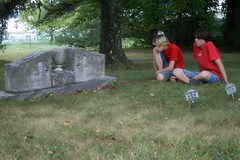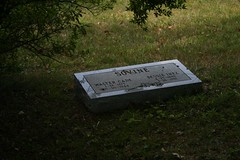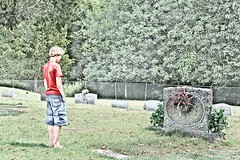belonging
For a relatively short period of our lives, we watch the family transform around us, not fully aware of the impact of losses and gains. We are certainly not aware of the impact we have already made on the family, or of our current place and importance.
But at some point, often early on, reality hits suddenly, and we feel the irreplaceable loss of a family member. Most often, we retroactively understand what we vaguely remember and we feel losses long gone and feel the weight that was borne around us by others.
Or else, we feel the unfathomable joy of a new life brought to the family and we retroactively feel the joy of births we vaguely remember others smiling about. At that point, we have a greater sense of our own place, of what we brought to the family, and of our importance to those around us.
Maybe it seems odd to contemplate death during the joy of a birth. But both are equally natural and necessary. Death causes us to draw together and hang to life. Birth makes us long to share the joy with those who are no longer with us. I don’t think I’ve ever been to a funeral at which I didn’t hear someone remembering and marking time by the birth or childhood of another family member. Likewise, when families gather around new life, I’ve often heard someone express the desire that someone long gone was still around to share in this joy.
I believe that it is only natural that upon experiencing for the first time, the intensity of the joy of new birth, an understanding of the gravity of grief would be awakened. A new life awakens a tighter knit that allows one to understand backward and revisit grief with great intensity. If one’s leap of understanding comes through grief, he is poised to feel more deeply the joy of life in the future. Perhaps it takes each, regardless of the time lapsed between the two, to fully develop the other.
Perhaps a baby is only cute, until we feel loss. Perhaps an elder is merely old until we experience birth. But each measures the other, and the baby represents hope, promise, future, eternity, and the elder represents roots, history, strength, wisdom, backstory and heritage on which our hopes, promises and futures are built.
This weekend I witnessed a quiet, peaceful joyous pride well inside my boys as they basked in the first birth in the family in the era of their understanding. I believe they felt more a part of the family by the addition of a new member.

As we drove up the street to head home on Sunday afternoon, Will asked if we could go see uncle Bill. I pulled the truck over to the side and Will climbed out and walked into the cemetery. He headed straight for Uncle Bill’s grave a couple hundred yards ahead of Jack and me. When we arrived, I saw him standing looking at the headstone.
I was looking at a picture Will had drawn sometime after Uncle Bill’s funeral. I realized that the picture was more than a sad little boy, empathizing with the grief of his family. This was a picture of a boy who for the first time felt what the family felt. He felt the void left by a family member’s passing. That moment of realization was etched into his being. His drawing depicted details of trees, neighboring headstones, fences, and names. But most of all, an emotion, empathy and belonging were etched into his being. It was an understanding that would come to full fruit as he held Carleigh Ryan in his arms and sung to her in his heart.
She whispered to him, “I am everything that never was, the dreams yet unfulfilled, the promises yet to be kept.” And he whispered back to her, “You are here because of who has been, dreams strived for, promises made in the past, in the deep true roots of our tree. You are boundless and free and full of promise because generations have dreamt you to be.”
This was the wisdom and truth exchanged between silent admiring and trusting cousins on a warm, sunny, Saturday afternoon.
We walked back down the hill and climbed in the truck. I drove them to another quiet patch beside the road. – one they’d never seen before, - and got out and sat beside a headstone. Without a word the boys followed me and sat down. After a few minutes of silence, Jack whispered to me, “this is your Papaw and Mamaw,” and he remembered sadness for loss that occurred 20 years before he was born.
He felt the severe fragility and brevity of life in the realization that his great-grandmother had been only 6 years older than I am now. He saw that his Mawmaw was once his age, and felt and understood with his own feelings and understandings, and he caught a glimpse of the events that have helped to shape who she is now. “I’ll be only 21 when you’re that age.”
 A few steps away, Will saw his own name on the stone of his great-great-grandfather, 1875-1944, a name that 3 of Walter Cade’s great-great-grandchildren bear.
A few steps away, Will saw his own name on the stone of his great-great-grandfather, 1875-1944, a name that 3 of Walter Cade’s great-great-grandchildren bear. Families breathe. When a baby is born, her first matter of business is to inhale. Breathe in the breath of life. To breathe out is our last requirement.
When one of our own moves on, the family exhales a sigh of loss and loneliness. We empty a part of ourselves and create a vacuum that we can’t imagine could ever be occupied. When a baby is born, the family inhales the baby-fresh scent of life, the fragrance of hope. The songs of our grandfathers are born again in the hearts of our children.
And we sing.
We choose to sing.
We can’t keep from singing.


<< Home